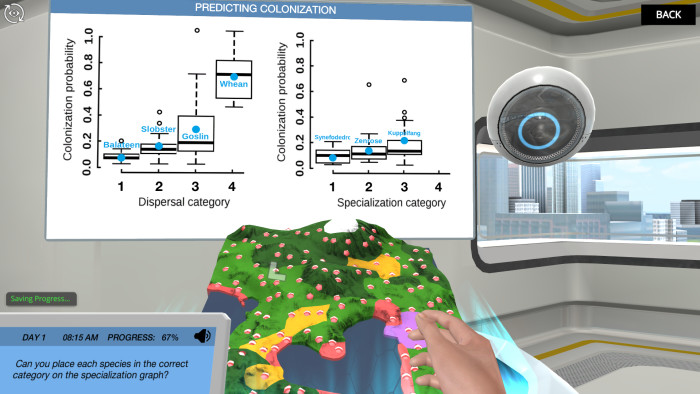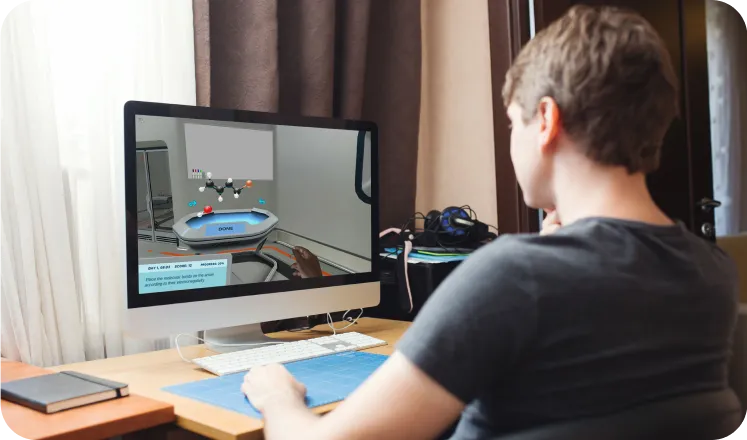
Landscape ecology, where the vibrant tapestry of biology intertwines with the intricate patterns of geography, is a captivating realm. As an emerging field, it delves deep into understanding the symbiotic relationship between spatial patterns and ecological processes, painting a holistic picture of our planet's dynamic ecosystems.
From the expansive savannas of Africa to the microscopic life within a single drop of pond water, landscape ecology unearths the secrets of biodiversity, distribution of species, and their interaction with the environment. The study of this field, though seemingly complex, can be an engaging journey full of wonder, sparking curiosity, and fostering a deeper appreciation for our world's beautifully orchestrated ecological ballet.
Teaching landscape ecology, however, can sometimes seem daunting due to its interdisciplinary nature and abstract concepts. But fear not; here are five creative ways to make landscape ecology engaging, fun, and relevant to your students.
Leverage the power of hands-on learning by integrating interactive models into your lesson plans. These models can be physical replicas that illustrate different landforms, ecosystems, or spatial distribution of species. Alternatively, they could be dynamic and computational, allowing students to manipulate various ecological factors and observe the consequences.
For instance, a model of a forest ecosystem could help students understand how various species interact with each other and the landscape. By changing different elements like the number of predators or amount of rainfall, students can see first-hand how these factors influence the ecosystem. Such interactive activities will help your students grasp complex ecological interactions and spatial relationships more intuitively.
Who said learning can't be fun? Incorporate games and activities into your lessons to make the concepts of landscape ecology more digestible. From role-playing scenarios to card games identifying different biomes or species, games can make learning exciting and foster a love for the natural world.
An exciting addition to your teaching toolkit could be the "Landscape Ecology: Determine persistence in a spatially heterogeneous landscape" virtual lab offered by Labster. This immersive simulation transports students to the exoplanet Astakos IV. Not all landscapes are created equal, and this simulation underscores this fact brilliantly by offering a spatially heterogeneous landscape for exploration.
Students take on the role of bioengineers, delving into unique patch types on Astakos IV and using their specific characteristics to understand local population dynamics. Their mission? To apply the principles of landscape ecology to determine whether the persistence of the Propella species on Astakos IV is in danger.
The advent of technology has significantly enriched the field of education, providing an array of tools that can transform the teaching and learning experience. In the context of landscape ecology, Virtual Reality (VR), Augmented Reality (AR), and Geographic Information Systems (GIS) can help students visualize and analyze spatial data in unprecedented ways. But the innovation doesn't stop there.
A prime example of how technology can enhance learning is Labster's virtual lab simulations. One of their offerings, "Landscape Ecology: Determine persistence in a spatially heterogeneous landscape" Virtual Lab, provides students an immersive educational experience.

Discover Labster's Landscape Ecology virtual lab today!
In this virtual lab, students are transported to the exoplanet Astakos IV. Tasked with the role of bioengineers, they explore the planet's unique and varied landscapes to understand local population dynamics. They are required to identify and compare unique patch types, which can help understand how spatial heterogeneity impacts ecological processes. The ultimate mission? To determine if the persistence of the Propella species on Astakos IV is in danger using the principles of landscape ecology.
Expose your students to the various career paths within landscape ecology to inspire them and show them the practical applications of what they're learning. Guest speakers, field trips, or videos showcasing professionals in the field can all serve this purpose.
Students could hear from conservationists, urban planners, wildlife managers, GIS specialists, environmental consultants, and more. Knowing that the concepts they learn in class can be used in exciting and impactful careers can motivate students to engage more deeply with the material.
Lastly, always aim to link landscape ecology concepts to real-world scenarios. Discuss current events related to ecology, such as the effects of deforestation on biodiversity, the impacts of climate change on different ecosystems, or the importance of ecological design in urban planning.
Encourage students to analyze these issues using the knowledge they've acquired. Assign projects where students propose solutions to real ecological problems. This not only solidifies their understanding but also empowers them to see how they can make a difference in the world.
By incorporating these creative teaching methods, you'll not only ensure that your students grasp the intricacies of landscape ecology but also ignite their passion for learning and the environment. Remember, the ultimate goal is to cultivate informed, caring citizens who can use their knowledge of landscape ecology to contribute to the sustainability of our planet.
Try our free 30-day All Access Educator's Pass today and teach with the Landscape Ecology simulation alongside 300+ other virtual labs!

Labster helps universities and high schools enhance student success in STEM.
Request DemoRequest a demo to discover how Labster helps high schools and universities enhance student success.
Request Demo